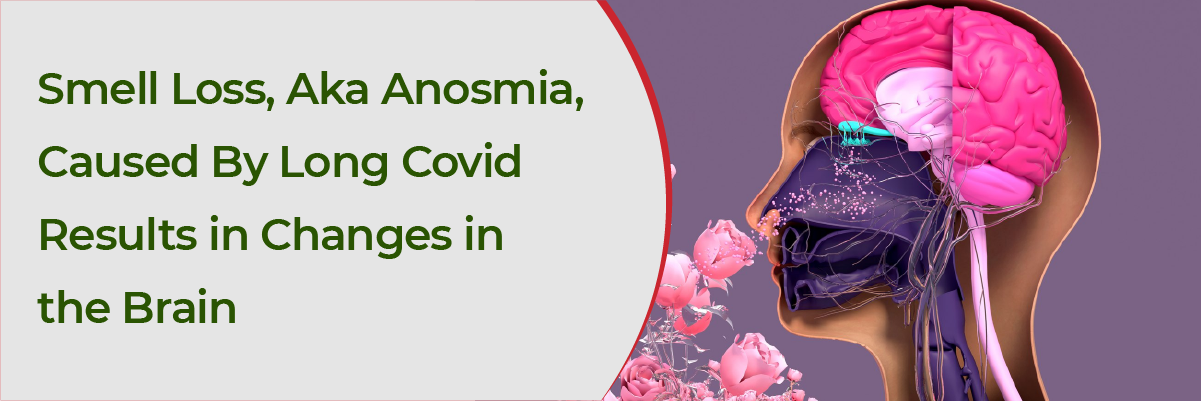
 IJCP Editorial Team
IJCP Editorial Team
Smell Loss, Aka Anosmia, Caused By Long Covid Results in Changes in the Brain
Loss of smell for a longer period influences the brain, reveals a study.
A study has discovered that people living with long Covid and suffering from smell loss have distinguishable activity patterns in specific brain regions and may have diminished brain activities. The study, posted in the journal 'EClinicalMedicine,' also observed impaired communication between two brain parts that process important smell information: the orbitofrontal cortex and the pre-frontal cortex.
However, this connection remained healthy in people who had regained their sense of smell after Covid.
According to the research, it appears that the loss of smell caused by long Covid, also known as anosmia, is linked to an alteration in the brain that disrupts the processing of smells.
Dr. Jed Wingrove, the study's lead author, said, "Persistent loss of smell is a manner long Covid is still exploiting the people's quality of life. The smell can guide us in many ways and closely determines our overall well-being. Our study reassures that there are no permanent alterations to brain activity for most people whose sense of smell returns."
Researchers also indicate that the brains of people with long Covid smell loss might balance this lost sense by boosting connections with other sensory regions. These people's brains showed increased activity between the brain regions that process smell and areas that process sight (the visual cortex). "This discloses that the neurons that would normally process smell still exist but are just working differently," another researcher said.

IJCP Editorial Team
Comprising seasoned professionals and experts from the medical field, the IJCP editorial team is dedicated to delivering timely and accurate content and thriving to provide attention-grabbing information for the readers. What sets them apart are their diverse expertise, spanning academia, research, and clinical practice, and their dedication to upholding the highest standards of quality and integrity. With a wealth of experience and a commitment to excellence, the IJCP editorial team strives to provide valuable perspectives, the latest trends, and in-depth analyses across various medical domains, all in a way that keeps you interested and engaged.





















Please login to comment on this article